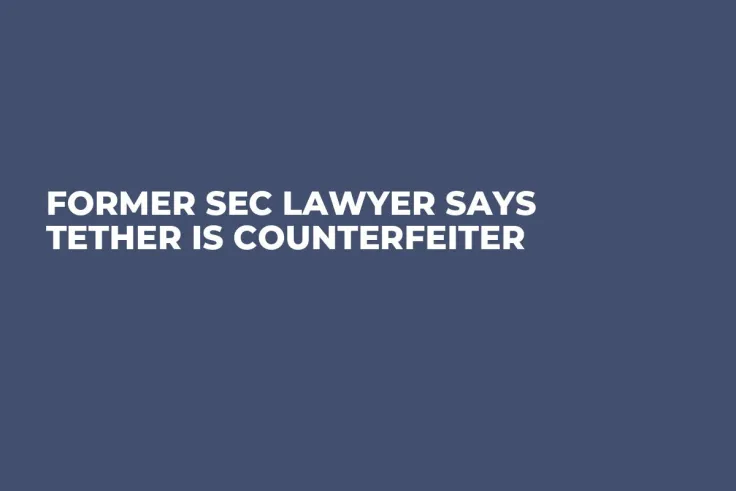
John Reed Stark, a former U.S. Securities and Exchange Commission (SEC) lawyer, has raised serious concerns about the popular cryptocurrency Tether, accusing it of being a "counterfeiter."
In a series of tweets, Stark criticized Paolo Ardoino, the CTO of Bitfinex, the company behind Tether, for failing to provide transparent operations and suggesting that using Tether is risky due to a lack of oversight and regulatory measures such as audits, inspections and insurance.
Stark went further, stating that Tether's practice of using attestation reports as evidence of their financial stability is misleading and unethical. "In my experience, attestations are not a standard, not legitimate nomenclature and 'are not even a thing.' And trumpeting attestations as a legitimate baseline, respectfully and IMHO, is unethical and misleading," he tweeted. Ardoino has previously cited these attestations as proof of Tether's solvency.
Stark also took issue with Tether's claim of being equivalent to the U.S. Dollar, going as far as labeling it a "counterfeiter." He points out that Tether, often referred to as USDT, tries to mimic the U.S. Dollar but lacks the characteristics of the currency. "Tether is masquerading as U.S. dollars, even going so far as to try to look like U.S. dollars by labelling itself USDT – all in plain view. Yet Tether is not the U.S. dollar and has not a single characteristic along those lines, Tether, IMHO, is a counterfeiter...," Stark opined.
Ardoino has yet to respond to Stark's most recent allegations. In the past, Tether had already faced criticism for a lack of transparency in its operations.
The claims also highlight the broader concerns in the crypto industry about regulation, oversight and the real value of digital currencies.
As reported by U.Today, the leading stablecoin issuer reported a Q1 2023 net profit of $1.5 billion amid growth in token circulation and a diversification of reserves.

 Vladislav Sopov
Vladislav Sopov Dan Burgin
Dan Burgin